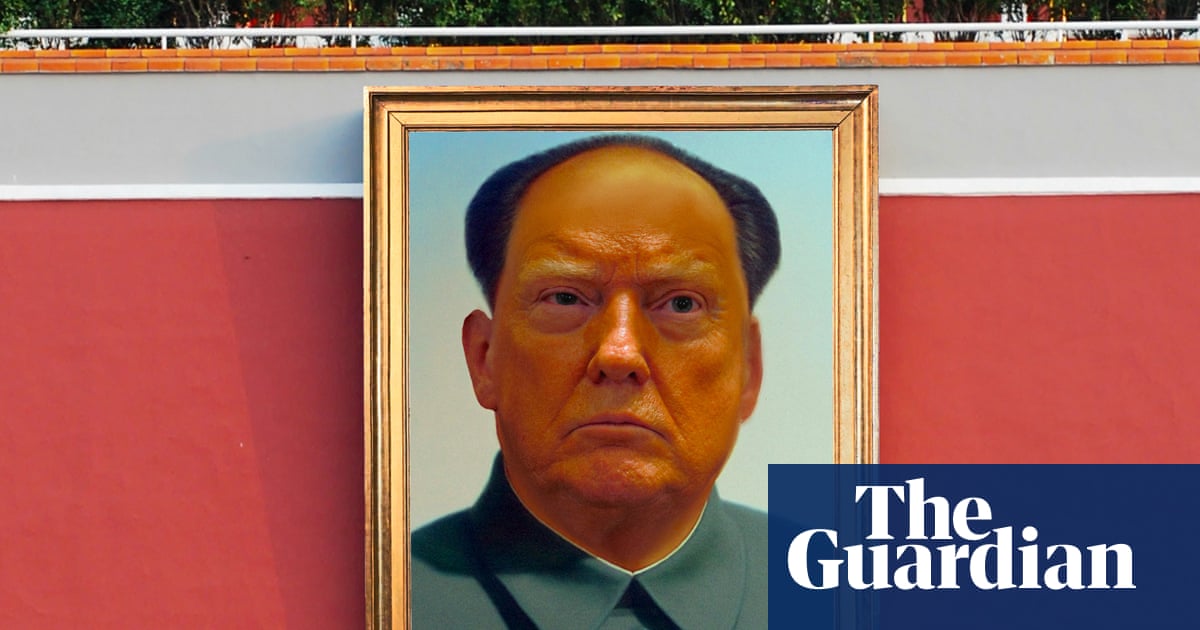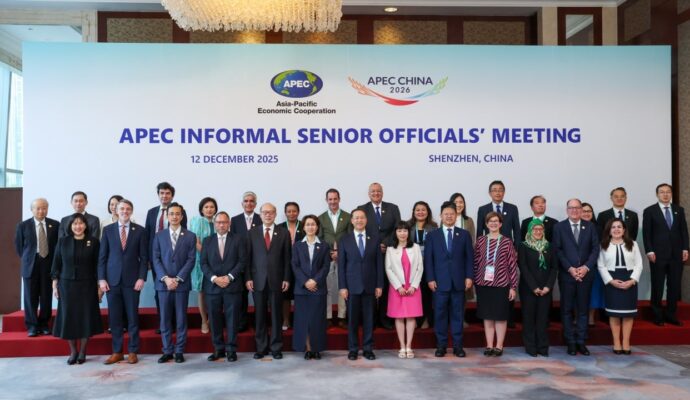
When Ronald Reagan became the first US president to address China’s Great Hall of the People in 1984, he did not waste an opportunity to school his audience on the benefits of the American way.
He boiled down his central economic ideology, and that of his Republican party – that governments should get out of the way, allow companies, industries and markets the space the thrive, without intervention – into a simple mantra: trust the people.
“These three words are not only the heart and soul of American history, but the most powerful force for human progress in the world today,” Reagan argued in Beijing. “Those who ignore this vital truth will condemn their countries to fall farther and farther behind in the world’s competition for economic leadership.”
While Chairman Mao Zedong, founder of the People’s Republic of China, had been fundamentally opposed to free markets and capitalism, Reagan argued that societies which enjoyed “the most spectacular progress” were the ones where people had been “permitted to think for themselves, make economic decisions, and benefit from their own risks”.
What would Reagan make of a country that, in a matter of weeks, became the largest shareholder in a microchip manufacturer; demanded a cut of firms’ overseas sales in exchange for export licenses; and fired a statistics official after government data embarrassed its ruling party?
In just the past week, senior government officials in the country have pushed to exert control over its central bank; ordered a tech giant to strike a deal with a supportive media conglomerate; and successfully urged a restaurant chain to reverse a rebrand.
This is not China. It is the United States, under a Republican president, in 2025.
Donald Trump, rather than adhere to the principles of free markets, small government and unbound capitalism that his party championed for a generation, is making his influence felt in every corner of corporate America. The commander-in-chief is also chairman of the economy.
Chairman Trump secured a “golden share” in US Steel while approving Nippon Steel’s controversial $14.9bn takeover of the steelworks, and says South Korea will provide $350bn for investments “owned and controlled by the United States, and selected by myself, as President”, as part of a trade deal he brokered.
He converted nearly $9bn in grants for Intel into a 10% stake in the chipmaker – reportedly in exchange for his support, after publicly demanding its CEO resign – and top Trump officials have suggested more companies are in their sights.
Chairman Trump is challenging the independence of the Federal Reserve and trying to obtain a majority on the central bank’s board of governors. This week, he even tried to fire one over unconfirmed claims of mortgage fraud, made by an ally inside his administration.
He also fired the head of the Bureau of Labor Statistics hours after official data revealed a sharp slowdown in jobs growth on his watch, claiming without evidence that the numbers had been “rigged” (he tapped an ardent supporter to replace her).
Rather than allow privately owned companies to go about their business, without the involvement of public officials and political leaders, Chairman Trump routinely intervenes.
Under a “little deal” he struck with Nvidia, the world’s most highly valued company will provide 15% of certain chip sales in China. Apple, threatened with steep tariffs by the president, came to the White House bearing gifts: $100bn in further US investment, and a souvenir with a 24-karat gold base.
No issue is too small for Chairman Trump. He waded into the debate over the mid-sized casual-dining chain Cracker Barrel’s changed logo earlier this week, dispatching his deputy chief of staff to speak with the firm and ultimately helping convince it to reverse the decision – weeks after pushing Coca-Cola to launch a drink with cane sugar, rather than corn syrup.
All the while, Trump’s Republican party continues to accuse political opponents of trying to erode capitalism, pursuing socialism and threatening to undermine free markets. The president’s supporters and officials deny his policies do any such thing.
A proposal by Zohran Mamdani, Democratic nominee for New York City mayor, to create five city-owned grocery stores, is “straight out of the Marxist playbook”, according to the Republican congressman Mike Lawler. “New Yorkers deserve solutions, not socialist fantasies that have failed spectacularly every time they’ve been tried,” Lawler argued last month.
A spokesperson for Lawler did not respond to a request for comment on whether some of Trump’s policies could be described in similar terms. But asked about conservative criticism of the Intel deal on Wednesday, Kevin Hassett, director of the White House national economic council, told CNN: “It’s certainly not socialism.”
Other rightwingers are not so sure. The Kentucky senator Rand Paul is among the most prominent Republicans to suggest otherwise. “If socialism is government owning the means of production, wouldn’t the government owning part of Intel be a step toward socialism?” he asked on X earlier this month. “Terrible idea.”
The conservative talk radio host Erick Erickson went further. “You can’t just be against socialism when the left does it,” he said last week. “If you’re not against socialism overall, guess what? You’re going to get socialism.”
“So if you support socialism”, Erickson added, “apparently Donald Trump is your guy.”
Such arguments miss the point, according to Tad DeHaven, an economic and fiscal policy analyst for the libertarian Cato Institute. There’s no little gold book for Trump to rival Mao’s little red one.
“We’re so focused on isms: communism, socialism … and they’re not,” he said of the administration. “There’s no strategic plan here. There’s no guiding philosophy, other than Donald Trump’s in charge.
“Donald Trump’s exercising power. Donald Trump doesn’t care about institutions, or constraints, or checks and balances. Donald Trump’s just going to do what Donald Trump wants to do.”
Call it Trumpalism. Economic ideologies are typically built on principles, from the free market foundations of capitalism to the socialist pillars of collective ownership and control. But this one – crafted by a man who rarely allows fundamental long-term positions to prevent him from saying, or doing, what he wants in the short term – is different.
Back in 2008, with the US auto industry on the brink, Trump said the federal government “should stand behind” the carmakers “100%”. Come 2015, however, this firm stance had dissolved. “You could have let it go bankrupt, frankly, and rebuilt itself … or you could have done it the way it went,” he said of the auto industry. “Either way would have been acceptable.”
The lack of a position on whether or not the federal government should have taken stakes in manufacturers, or allowed them to go bankrupt, was an early example of Trumpalism. Ideology takes a backseat to the instincts and impulses of a domineering chairman, from one week to the next.
“This is just scattershot, it’s day by day,” DeHaven said. “There’s no plan. There’s no strategy. It’s just power and leverage, and however they can obtain it for the boss, however the boss himself can obtain it. That is the modus operandi.”
Whatever happened to trust the people? “You can argue exactly as to when,” said DeHaven, “but the Republican party that I grew up with – the Reagan Republicans – that party is dead and buried”.

